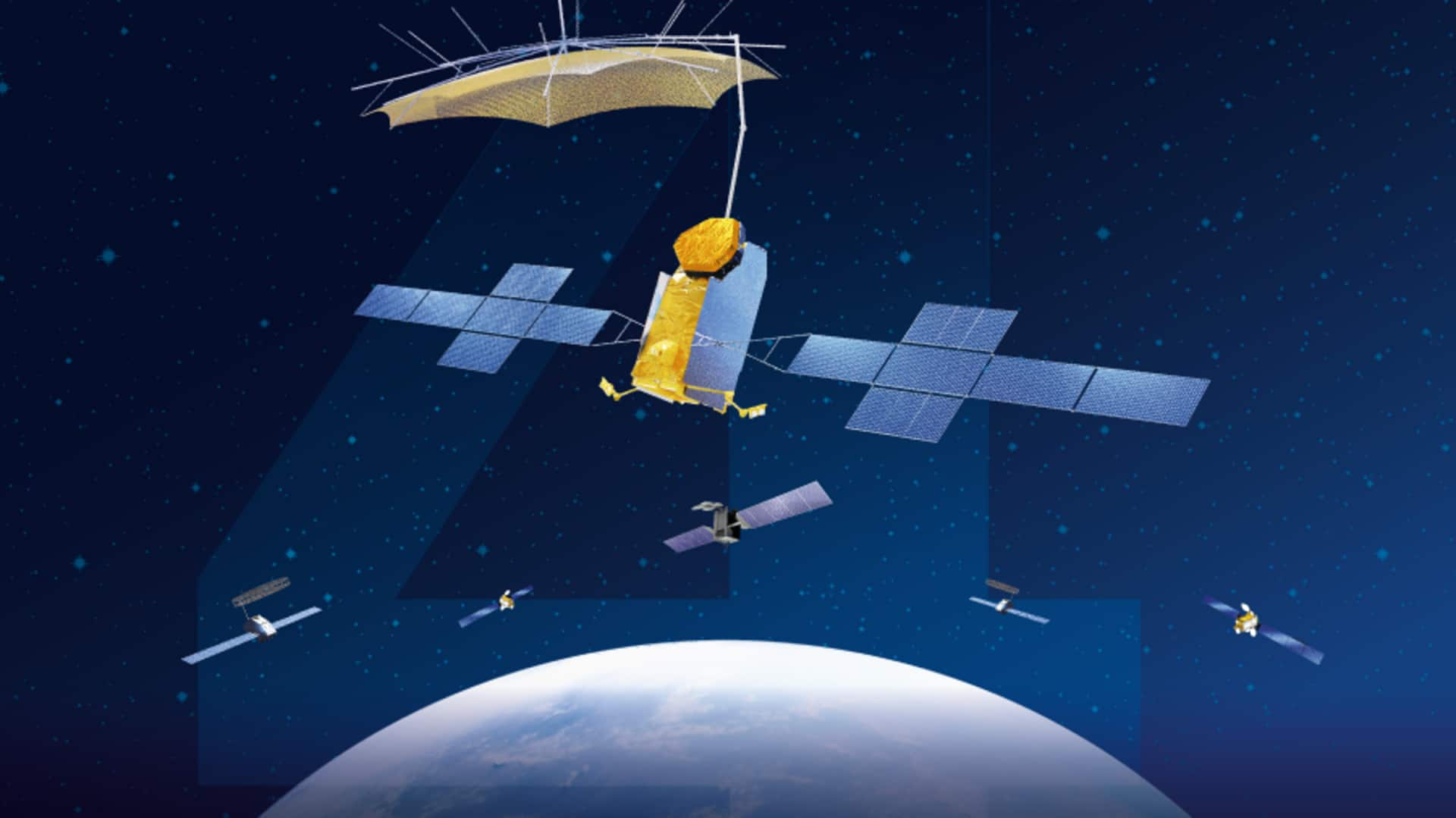
What's so special about SpaceX's first orbital launch of 2025
What's the story
SpaceX has successfully launched its first Falcon 9 rocket of the year. The rocket blasted off on Friday from Space Launch Complex 40 at Cape Canaveral Space Force Station in Florida. The mission's main goal was to deliver the Thuraya 4 satellite into a geosynchronous orbit. The launch kicked off what is expected to be another busy year for Elon Musk's space exploration company.
Satellite details
Thuraya 4 to provide mobile communication services
The Thuraya 4 is operated by Space42, a UAE-based satellite and space services company. The satellite will offer mobile communication services across Europe, Africa, and the Middle East for commercial as well as government customers. About 35 minutes into the flight, the Thuraya 4 satellite separated from Falcon 9's second stage and was deployed into its geostationary transfer orbit.
Booster recovery
Falcon 9 booster's successful return and recovery
Eight minutes and 40 seconds after launch, the Falcon 9 booster successfully returned to Earth, landing on SpaceX's droneship "A Shortfall of Gravitas" in the Atlantic Ocean. This was the 20th flight and recovery for this specific Falcon 9 first stage booster, adding to SpaceX's remarkable record of recovering an orbital-class rocket for the 341st time. The recovered boosters comprised both Falcon 9 and Falcon Heavy variants.
Mission record
Thuraya 4-NGS: A milestone in SpaceX's mission history
The successful deployment of the Thuraya 4 satellite, or Thuraya 4-NGS (Next Generation System), marks another milestone in SpaceX's mission history. It is the company's 418th Falcon 9 rocket flight and its 435th overall mission. Just in 2024, SpaceX launched more than 130 orbital missions and is expected to exceed that this year.
Technological advancement
Thuraya 4-NGS to offer AI-powered services
Constructed by Airbus, the Thuraya 4-NGS satellite comes with advanced technology. According to Ali Al Hashemi, the CEO of Yahsat Space Services (one of the two companies that make up Space42), the technologies on board will "unlock innovative AI-powered services." This marks a major step forward in the use of artificial intelligence in space-based communication services.